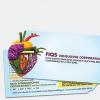Hello!
How is everyone monitoring their suppliers? their performance?
We are a juice manufacturer and we annually pull samples of raw ingredients from approved suppliers and analyze them against both of ours and their specs.
IMO that is TOO much. Based off the SQF 9 code:
Verification of raw materials shall include certificates of conformance, certificates of analysis, or sampling, and testing. The verification frequency shall be identified by the site.
it says COCs, COAs or sampling and testing.
Would our usage of raw materials already be us verifying they send us the correct raw material?
What is everyone in a similar industry doing?
Edit: I mean its VERY time consuming to have to do this every year where we pull all raw material and test it. we are talking about over 50 ingredients that need to be sampled!
Edited by Charles.C, 24 November 2021 - 11:15 AM.


















